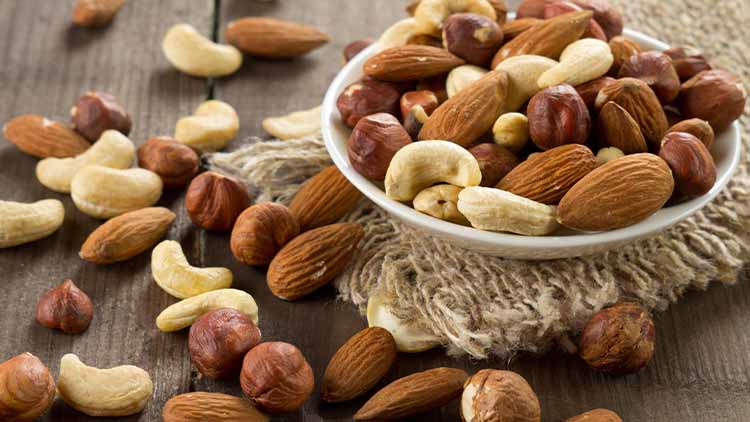There are numerous health benefits of adding foods rich in nitric oxide in your diet. Your blood needs ample space to flow through and provide your muscles and organs with the oxygen they need. As oxygen is transported in a more efficient way, your energy levels improve drastically. Nitric oxide has been used by athletes since it was discovered to improve blood flow and overall cardiovascular health.
Vasodilators are prescribed by doctors to patients with high cholesterol and blood pressure levels. But if you don’t suffer from any cardiovascular condition and still want to boost your blood flow for its many health benefits, you can do that naturally by including nitrate-rich plants and plant proteins in your diet.
Nitric oxide works as a natural vasodilator and can help protect your heart, increase athletic performance and overall energy levels. Let’s dive deeper into what nitric oxide can do for you.
- Nitric Oxide and its health benefits
- Can increasing Nitric Oxide levels help with erectile dysfunction?
- How to increase Nitric Oxide naturally
- The best nitric oxide foods
- Foods that could decrease NO levels

What Are the Health Benefits of Nitric Oxide?
Nitric oxide behaves as a natural vasodilator and expands your arteries for smoother blood flow. This indirectly brings about a number of health benefits. Here’s a list of some health benefits that result from an increase in nitric oxide levels in your body:
Healthy Blood Pressure
High blood pressure is a result of constricted arteries and the high force of blood pushing against the arterial walls. The high pressure weakens arteries and damages organs. If not treated, it can eventually lead to serious health issues such as kidney and heart diseases.
Nutritionists and doctors both support the fact that patients who suffer from high blood pressure have an impaired ability to utilize nitric oxide’s bioavailability.
Diets rich in nitrate levels have been proven to reduce blood pressure levels by dilating blood vessels.
Improved Exercise Performance
During exercise, your muscles are rapidly burning up oxygen to produce energy and sustain your intense activity. Due to restricted blood vessels, active muscles don’t receive enough oxygen to produce the required amount of energy.
By widening blood vessels, nitric oxide helps improve blood circulation in the body. Higher oxygen levels are available and cells generate more energy for muscular activity.
Dietary nitrate supplementation has shown an increase in athletic performance during high endurance exercises.
May Improve Cognition
There is some evidence to suggest that nitric oxide levels can impact cognition and memory. Some studies have found that nitric oxide helps activate the computational skills of the brain.
It also showed that L-arginine, a precursor to the production of nitric oxide, plays a vital role in the management of age-related degenerative diseases such as dementia and Alzheimer’s disease.
Higher Energy Levels
The brain uses a lot of energy to keep all your organs and vital functions going. In fact, it uses up to 3 times more oxygen than all the muscles in your body combined. An increase in blood flow to the brain helps your bodily functions perform better. Energy levels are boosted with the increase in nitric oxide levels.
May Decrease Muscle Soreness
Muscle soreness is a result of insufficient flow of oxygenated blood. While the oxygen supplements last the muscles produce energy using aerobic activity. But when the oxygen levels fall below a certain threshold, the cells generate energy without it in a process called anaerobic energy production.
Lactic acid is a byproduct of anaerobic activity. The lactic acid results in muscle soreness. By improving blood flow, more oxygen is available for energy production and muscle soreness is reduced significantly.

Can Nitric Oxide Help with Erectile Dysfunction?
Erectile dysfunction (ED) is a recognized medical condition which results in an inability to achieve or maintain an erection firm enough for sex.
While there may be more serious cases of erectile dysfunction, most cases are caused by an inability to receive proper oxygen and blood flow.
Erections are complex processes that involve numerous chemical reactions. One of the most vital processes in maintaining an erection involves the use of nitric oxide. For relaxation; muscles in the penis require nitric oxide. It’s released by nerve endings and allows the muscles to relax.
As a result, vascular chambers open up and are filled with blood, which makes the penis erect. Common drugs for erectile dysfunction treatment including Viagra also work by improving nitric oxide levels in the body.
Nitric oxide is synthesized by your body using a number of chemicals. One of these essential chemicals is L-citrulline. A lack of L-citrulline can lead to depleted levels of nitric oxide indirectly causing your erections to be soft and inadequate.
A research study concluded that L-citrulline doses in patients suffering from erectile dysfunction improved their condition significantly. However, the chemical was less effective compared to prescription drugs such as Viagra.
Nevertheless, L-citrulline is a safe and viable option for the production of nitric oxide to help patients.

Natural Ways to Increase Nitric Oxide Levels
Sunlight Exposure
Unfortunately, loading up on vitamin D supplements is not enough to meet the vitamin D levels required by your body. Exposure to sunlight produces a number of chemicals that are essential for your body to function properly.
As soon as you’re exposed to sunlight, your skin begins synthesizing nitric oxide. The nitric oxide is then released into your bloodstream.
Moderate Exercise
Exercise has a multitude of
health benefits. During exercise, the additional pressure on the arterial walls stimulates the production of nitric oxide, which then increases the size of blood vessels and allows for increased circulation.
Exercise is also known to promote antioxidant activity, which inhibits the free radicals from breaking down nitric oxide. While some benefits are realized even after one exercise session, the full effects will only be noticeable when you incorporate exercise in your daily routine.
Cut Back on Mouthwash Use
Antiseptic mouthwash contains chemicals that kill off the bacteria in your mouth. But the problem is that they also kill the good bacteria that are essential in the production of nitrates. Human beings are incapable of producing nitric oxide from nitrates without these essential bacteria.
For 12 hours after use of mouthwash, the bacteria levels remain low while blood pressure rises. Therefore, to prevent depletion of nitric oxide levels, it’s best to use your mouthwash sparingly.

Nitrate Rich Diet
The simplest way to increase nitric oxide levels in your body and yield the benefits is by increasing the proportion of nitrate-rich foods in your diet. Here’s a list of foods that have high nitric oxide levels:
-
- Leafy Greens
Among the many benefits of eating green vegetables is the added benefit of an increase in levels of nitric oxide. Foods like arugula contain 480mg of nitrates per 100g. Spring greens contain 188mg per 100g and butter-leaf lettuce contains 200mg per 100g. Other vegetables like spinach, kale and cabbage are also full of nitrate-based nutrients.
-
- Beets
Beets are one of the best foods that increase your nitric oxide levels naturally. While their taste may discourage some people from adding it to their salads, smoothies with a bit of beets added can provide you with the same benefits.
Pure beet juice contains 279mg of nitrates per 100g. To increase health benefits, avoid adding sugar and always buy organic produce.
-
- Dark Chocolate
If you’re not a fan of fruits and vegetables, one way to add extra nitrates in your diet is by munching on delicious dark chocolate. Research shows that dark chocolate increases nitric oxide levels and alleviates high blood pressure in cardiovascular patients. But ensure that levels of dark chocolate are adequate. A higher percentage means more flavanols and better blood flow.
-
- Rhubarb
Rhubarb makes the list, packing around 280mg of nitrates in 100g. To water down the strong tart taste, you can cook it with an addition of honey or strawberries.
-
- Spirulina
Spirulina is actually an alga that has been consumed since many centuries dating back to the era of the Aztecs. The potential health benefits are derived from its high vitamin and mineral content.
Spirulina contains 70% of pant protein including the amino acid L-arginine. L-arginine is an essential building block of nitric oxide. The best way to get some of this alga is to purchase it in the form of organic green juice powder.
-
- Pomegranate Juice
Pomegranate juice is a favorite among patients dealing with erectile dysfunction. Due to its nitric oxide boosting properties, pomegranate juice lowers blood pressure, cholesterol levels, and reduces the amount of plaque in arteries.
It’s great for individuals who are looking to improve their blood flow and overall cardiovascular health. Pomegranate juice does not directly add to the levels of nitric oxide but actually prevents its loss by limiting the oxidative process.
-
- Meat
Meat, poultry and seafood are packed with coenzyme Q10. In fact, they account for 64% of the total intake. The coenzyme does not aid in the production of nitric oxide but preserves the existing stores.
Organ meats and fatty fish contain the highest amount of Q10. The added benefits of adding meat to your diet include improved athletic performance and prevention of migraines.
-
- Garlic
L-arginine requires the activating synthase to produce nitric oxide. Garlic is a great source of activating synthase and can significantly increase the production of nitric oxide. Aged garlic has been proven to indirectly impact cardiovascular health by increasing the rate of nitric oxide absorption.
-
- Watermelon
Watermelon is a great source for the amino acid citrulline. Citrulline is converted to arginine and ultimately nitric oxide. Athletes recovering after high endurance activities load up on watermelons to prevent injuries and post-workout muscle soreness.
-
- Nuts and Seeds
Arginine aids in the process of nitric oxide production and is present in high proportions in nuts and seeds. Black walnuts and almonds have the highest amount of L-arginine. One-quarter cup of black walnuts contains about 1,100 mg of L-arginine. And the same amount of almonds contains around 965mg.
Research showed that arginine supplements increased levels of nitric oxide after only two weeks.

Foods that May Decrease Nitric Oxide Levels
If you’re trying to maximize the benefits of nitric oxide and want to improve your overall cardiovascular health, there are certain dietary restrictions you should keep in mind.
The production of nitric oxide is a homeostatic process. It actively maintains fairly stable conditions for optimal production. Scientists have concluded that overconsumption of foods that have a high salt content impairs the cell’s ability to produce nitric oxide levels in the blood. It’s also known to increase blood pressure in cardiovascular patients.
You should also stay away from alcohol if you want to reap the full benefits of nitric oxide. Alcohol is a strong vasoconstrictor and works against the nitric oxides in your body. However, if you’re a social drinker and don’t want to completely eliminate alcohol from your diet consider switching to red wine.
It is high in antioxidants and enhances levels of nitric oxide synthase, the chemical that is essential for the production of nitric oxide. When consumed in moderate amounts, red wine can provide tremendous health benefits.
Conclusion
Nitric oxide is a crucial element that provides enormous health benefits including blood pressure regulation, improved blood flow, enhancement of cognition ability and even alleviation of erectile dysfunction.
Simply adjusting your diet to include foods that are rich in nitric oxide and protein plants can help in maintaining a healthy level of nitric oxide in your body.












